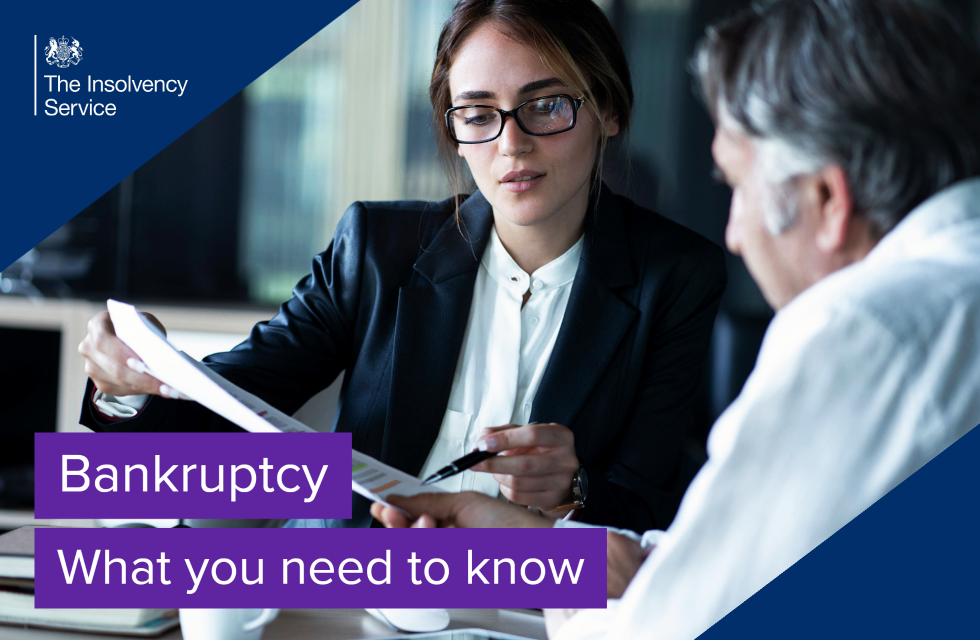Everything about Insolvency Practitioner
Everything about Insolvency Practitioner
Blog Article
Rumored Buzz on Insolvency Practitioner
Table of ContentsNot known Incorrect Statements About Insolvency Practitioner The Only Guide to Insolvency PractitionerAn Unbiased View of Insolvency PractitionerInsolvency Practitioner - An OverviewThe Ultimate Guide To Insolvency PractitionerInsolvency Practitioner for BeginnersTop Guidelines Of Insolvency PractitionerInsolvency Practitioner Things To Know Before You Get ThisWhat Does Insolvency Practitioner Mean?
This can take place for a number of factors, including poor economic monitoring, unanticipated expenses, or an adjustment in the marketplace. If a firm is financially troubled, it might be forced to shut down or liquidate assets to pay lenders. This can have a major impact on the service, staff members, and investors.
The Only Guide to Insolvency Practitioner
Various other reasons for insolvency consist of fraud, mismanagement, and unforeseen prices. Bankruptcy can also lead to job losses and the closure of organizations.
The company might be forced to offer possessions, lay off personnel or also close down. Financial institutions might be left out of pocket and the business's investors might see their financial investment disappear.
Insolvency is the process where a firm is wound up and its possessions are sold off to pay creditors. This is usually the last resource, as it can have a very unfavorable result on the business's track record. Receivership happens when a firm is unable to pay its financial debts and is placed under the control of an external administrator.
Insolvency Practitioner Fundamentals Explained
Volunteer management resembles receivership, however it is started by the supervisors of the business instead than the financial institutions - Insolvency Practitioner. This choice is commonly made use of when a business is dealing with economic difficulties yet there is still really hope that it can be transformed around. Business bankruptcy is a complicated and major problem that can have far-ranging ramifications for organizations of all sizes
With the right aid, you can make certain that your organization has the very best opportunity of weathering this difficult time.
The Single Strategy To Use For Insolvency Practitioner
Whatever your factor for shutting your company, there are several considerations you need to resolve prior to 'shutting the doors'. There's likewise a great deal you can do to make the process much less demanding and improve end results. Closing down your business is not practically fulfilling the sensible and legal needs.
Care for your staff members As an employer, you require to monitor and supply support to your employees throughout this demanding time. Be conscious of any type of feasible wellness and wellbeing issues they may experience as a result of: work insecuritytransitioning with the sale of the businesschange in proprietors. You can: There are broadly 2 circumstances in which you would voluntarily shut your service.
You likewise: do not intend to, or can not, sell the businesshave no-one to take it over. You're likely to have time to plan your closure. This will help you to: close efficientlymeet your lawful obligationssave moneytake away maximum earnings. You could be closing your business due to the fact that: it's not covering its expenses and running costsyou can not maintain the operating expense while trying to market it.
Unknown Facts About Insolvency Practitioner
This might avoid you from coming to be financially troubled or bankrupt, and aid you to leave the company with no long-lasting impacts. There are numerous things you need to deal with before shutting your organization. It is essential to have an exit approach. Your accounting professional, lawyer or service consultant will certainly have the ability to help you with this.
:max_bytes(150000):strip_icc()/Liquidation-4193561-Final-699e67d885c243c39cac2985b16d51cb.jpg)
You need to finalise all tax obligation problems for your organization, even if it's no longer trading. This includes your obligations concerning repayment of: edge benefits taxpay-as-you-go (PAYG)superannuationemployment termination.
Insolvency Practitioner - Questions
Insolvency occurs when your company can not pay its debts, which can result in your business closing down. Different insolvency treatments apply to people and firms.
If you attempt to take care of it yourself, you'll need to connect with every creditor individually to attempt to negotiate routine payment quantities. Bankruptcy or bankruptcy consultants can: assistance you through the processhelp you comprehend your optionsnegotiate with your financial institutions on your behalf. They hold particular permits Check This Out and credentials in this specialised area.
Insolvency Practitioner - The Facts

Personal bankruptcy for single investors and individuals within partnerships Individual insolvency procedures relate to: Before beginning a personal insolvency procedure, it's crucial to recognize the: influence of the consequenceshow long the effect will certainly be (Insolvency Practitioner). Consequences can consist of: a document on your credit rating filenot being able to acquire financehaving rental applications rejectedrestrictions on future employmentinability to be a director of a service
Not known Facts About Insolvency Practitioner
Debt arrangements, also referred to as a Component IX arrangement, permits you, or the designated administrator, to work out with your financial institutions to pay a portion of the combined financial obligations over a duration of time to your manager, as opposed to attempting to continue paying per lender. There are certain limits for the worth of financial debt, property and earnings that you have to fall under to be eligible for a Component IX debt contract.
Company insolvency and liquidation An 'financially troubled firm' is unable to pay its debts or cover the cost of its overheads. In some situations, financially troubled firms might go into liquidation. Liquidation is when an independent registered liquidator is appointed to take control over the business and wind up the Click Here company organization in an orderly means.
Little Known Questions About Insolvency Practitioner.
As kept in mind in the Introduction, while the report expresses specific preferences with regard to a few of the more essential of these choices, it does not try to develop requirements in this complicated area. Moreover, it might need to be updated in the future to think about growths in this area.
Sonia Piccinini devoted substantial time and effort in the preparation of this magazine. The views revealed in the report are those of the IMF's Legal Division and ought to not be associated to the Exec Directors or the Monitoring of the IMF. FRANOIS GIANVITI Current experience has demonstrated the degree to which the lack of organized and effective insolvency treatments can aggravate economic and economic dilemmas.
Report this page